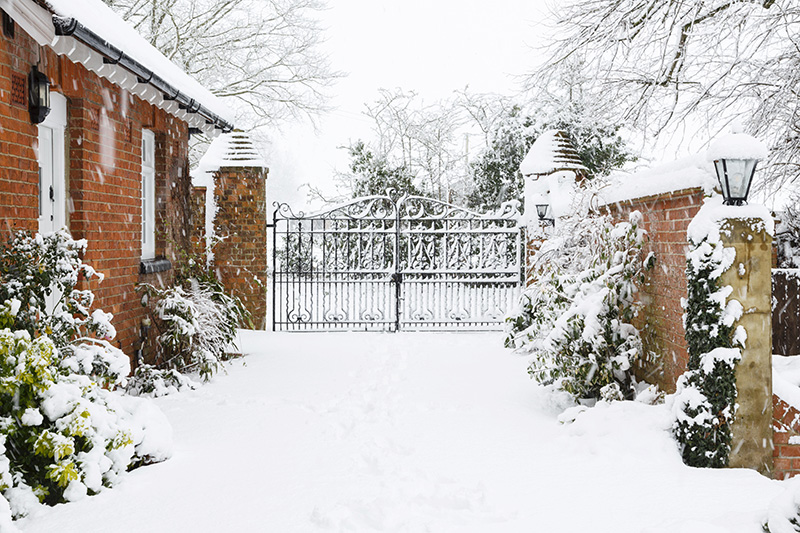No products in the basket.
Winter plays havoc with every area of your day-to-day life and requires a lot of preparation, whether you are aware of it or not. From pipes to floorboards, everything in your property is affected by the drop in temperature and requires some extra TLC as we head into the winter months, and your driveway is no different.
No matter what type of driveway you have, it’s important that you know how to properly prepare for the cold months ahead in order to avoid any damage or structural issues that the low temperatures and snow could potentially cause.
To protect your driveway, here are our top tips for preparing different types of driveways for winter.
Concrete Driveway
Although concrete driveways are marketed as being low maintenance, they are the ones that require the most care once temperatures being to drop. The freeze-thaw cycle, in particular, can do a real number on your concrete driveway if it hasn’t been sealed properly. As the snow melts, it seeps into any cracks in the driveway and when it freezes it expands, worsening the cracks in the process. To avoid this, make sure that you seal any cracks in the concrete while the weather is still mild, in order to avoid a much larger repair job in the spring.
Gravel Driveway
Preparing a gravel driveway for winter is a straightforward process as you don’t have to worry about the freeze-thaw cycle causing any damage. You should avoid topping up your gravel before the cold weather sets in or wait until spring, as doing this over winter means that it won’t be compacted properly into the frozen ground underneath. If you are using gravel grids like our Ecodeck gravel grids then you will have no structural issues over winter as the high-grade injection moulded plastic grids are stable up to -50C – far colder than the average British winter!
Grass Driveway
Grass driveways are becoming an increasingly popular choice as they require little maintenance after a few months and are a SUDS compliant driveway option. This makes them ideal for anyone that is looking to make their property more environmentally-friendly without any extra maintenance work. To prepare a grass driveway for winter, make sure that you aerate the turf and consider a sand topdressing to protect the grass from frost and snow. Other than that, a properly installed grass driveway requires little to no preparation ahead of the chilly weather.


